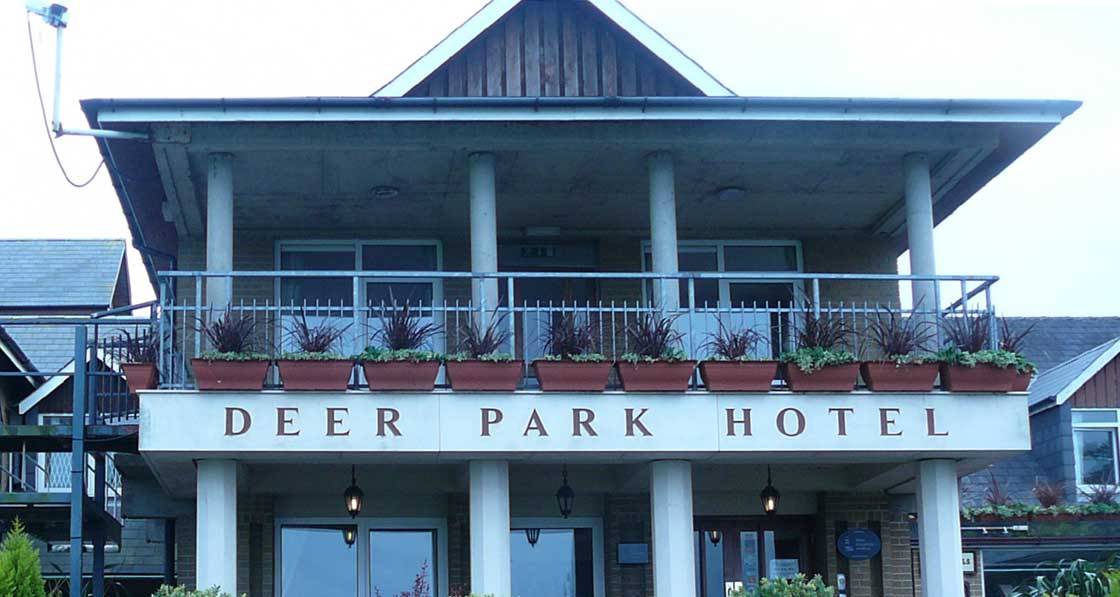
- Government
- Posted
Hotel demolition judicial review could set embodied carbon precedent
This article was originally published in issue 50 of Passive House Plus magazine. Want immediate access to all back issues and exclusive extra content? Click here to subscribe for as little as €15, or click here to receive the next issue free of charge
The challenge raises important questions about Ireland's approach to considering whole life carbon when considering whether to renovate or demolish and rebuild.
Issued by Green Party councillor David Healy, the challenge centres on whether An Coimisiún Pleanála (formerly An Bord Pleanála) properly considered alternatives to demolition when approving plans by new owners to knock down and replace the existing hotel. Healy claims that the planning authority failed to require adequate justification for demolition rather than renovation of the building. The case highlights growing concerns about construction waste and carbon emissions from Ireland's building sector. Irish Green Building Council research cited by Healy indicates that 14 per cent of Ireland's carbon emissions come from building construction, including material production and transport.
"Too much of Dublin's building stock is destroyed and dumped in favour of new builds. Many people see this for what it is – an enormous waste of resources,” he said. The judicial review is based on three main grounds: the lack of a required demolition justification report addressing sustainability concerns, procedural issues around circulation of documents during the appeal process, and alleged failures in environmental impact screening.
The Deer Park Hotel case appears to form part of a pattern in An Coimisiún Pleanála's handling of demolition applications in Howth since the 2023 Fingal Development Plan came into force, which requires proper sustainability justification for demolitions. In four recent cases, the planning board's approach has been inconsistent.
In August 2023, in the case of a private dwelling known as ‘The End’, an inspector accepted a flawed comparison between an unretrofitted existing house and a new build, with no parties highlighting the invalid methodology. In the Camelot case of February 2025, the board refused demolition on visual grounds but explicitly rejected the inspector's advice to refuse based on the demolition provisions - without providing further details.
With the Deer Park Hotel, in March 2025 the inspector accepted what was merely a proposal for a whole life carbon assessment as a "reasonable and robust" analysis, an error not caught due to circulation failures. Most recently, an April 2025 decision saw private dwelling Somerville refused permission explicitly citing development plan provisions against demolition, despite the inspector accepting a flawed comparison between a retrofitted existing house with a gas boiler and a new build with a heat pump. (Ed. - From a whole life carbon perspective, one of the most effective means of reducing carbon emissions is switching from a fossil fuel boiler to a heat pump).
Healy’s move comes as Ireland faces pressure to reduce construction-related emissions in line with climate commitments. Fingal County Council's development plan now requires applicants proposing demolition to submit reports justifying their approach over renovation, considering factors like embodied carbon and resource use. International experts have increasingly advocated for "retrofit first" approaches, with the Royal Institute of British Architects noting that refurbishing existing buildings is "the most effective way to avoid embodied carbon emissions."
While Healy supports having a hotel at the Howth Demesne location and doesn't consider the existing building architecturally significant, he argues that even poor-quality buildings can be transformed into highquality, low-impact developments through renovation. “I agree with the principle of a hotel at this location, and I don’t consider that the existing hotel is of architectural heritage value. But buildings of poor quality can be turned into high quality buildings with low environmental impact,” Healy wrote on his blog. The case could set important precedents for how planning authorities handle demolition proposals in the context of climate targets and sustainable construction practices, particularly given the apparent inconsistencies in recent board decisions. Passive House Plus editor Jeff Colley has advised Healy on the case, and helped Healy engage leading British whole life carbon expert, Simon Sturgis, to provide expert witness advice. Healy’s legal team includes Ellen O’Callaghan BL, instructed by Fred Logue of FP Logue Solicitors. The judicial review of the Deer Park decision is scheduled to be heard in October 2025.





